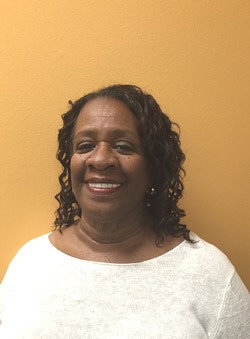 Dr. Nadine Haley
Dr. Nadine HaleyThe need for the African-American teacher continues to increase. What do we need to do to protect the lifeline of the African-American teacher candidate? Demographics of the teacher workforce are a mismatch with student demographics. At the same time, teacher preparation has not done nearly enough to increase the diversity of the teaching ranks to get African-American teachers into classrooms. Far too many African-American students fail to achieve academic success.
Of course, I am not naive. I do not believe that only the African-American teacher can lead African-American students to academic achievement. As I sit in university and board meetings, there is most oftentimes a slight mention of the national conversation on the need to diversify the teacher workforce. Meetings engage in heartfelt rhetoric. Yet a definitive plan of action is omitted.
Teachers transform lives. My African-American advocates were Mrs. Luck, Miss Kirpatrick, Mr. Enard and Miss Brown. They were aware of who they were and who they were teaching. Their style of communication and teaching methods strengthened my confidence, gave me courage to take risks, instilled a conviction in the power of my academic skills and filled me with a sense of integrity that now enters all interactions. For these teachers, commitment was fundamental. They encouraged pride. Not an arrogance or egotism, but of self-worth. Mutual respect and trust in our relationship was natural to learning.
These teachers worked jointly with my family to educate me. My family graciously accepted their support. They were a team on a specific mission. Each identified and strengthened my academic gifts, nurtured my nonsense and demanded excellence.
Mentoring was the genius in our relationship. For example, Mrs. Luck commuted to my hometown to teach at the local elementary school. On many occasions, she took me to her hometown where I participated in community and professional activities. I accepted my first job on the West Side of Chicago to teach fifth grade. My teaching was formed from their modeled behaviors. I knew my role and responsibility.
During my second year of teaching, Mrs. Luck phoned to say that she was coming to Chicago to visit relatives. She wanted to visit. She followed me through college where I joined her sorority and checked on me at my first teaching job.
What can we do to increase gradation of the African-American teacher candidate? Teacher education programs must move into strategic actions. Our classrooms are filled with African-American students who may live in ill-omened (e.g., dismal, grim, dreadful) situations; however, they own abilities to contribute to strengthening the quality of our society.
I contend that teacher education programs must now move past rhetoric. Put into practice sustainable action plans. Researchers Richard Ingersoll and Henry May argue that students benefit from being taught by an African-American teacher because they are likely to have “insider knowledge” because of similar life experiences and cultural backgrounds.
Recent findings by scholars support that students of color who are most often African-American do better on academic outcomes if taught by teachers of color. However, the benefits of instruction by an African-American teacher are not just for African-American students. These educators are also critical in the learning process for White students.
If the African-American teacher contributes to the academic experience, why don’t teacher preparation programs do more to get them into the classroom? Of course, there is no single reason for this divide. Whatever the root cause one thing is clear: Teacher education programs have not done enough to produce African-American teachers.
On the other hand, I am fortunate to have been surrounded by African-American teachers who adeptly guided my decisions, behaviors and interactions with learning.
From my African-American teachers I learned to question. Whose knowledge is this? Whose perspective is this anyway? Whose voice? As scholar Lisa Delpit wrote, “… Appropriate education of poor children and children of color can only be devised in consultation with adults who share their culture … we must keep the perspective that people are experts on their own lives.”
As an African-American teacher educator at a predominantly White institution, the outcome of the ties to my African-American teachers determines my research agenda and how I create intentional work that centers on the African-American teacher candidate. Research reviews show that teacher education programs fail to fulfill the charge to graduate more African-American teacher candidates.
Early on, it came to my attention that, even though African-American students were admitted into our program, there was a mysterious disappearance. It was a given. I began to make observational notes of these “disappearances.” I took my unsolicited data to my dean who supported my concern.
I reach out to all students but especially the student who looks like me, talks like me, whose mannerisms are me and who are, simply, me. As a member of faculty in urban education and serving on boards focusing on issues in teacher education, it is now clear that definitive actions must be created and taken to address the diversification of our teacher workforce. Stop the talk.
Dr. Nadine Haley serves as associate teacher education faculty at Metropolitan State University in Minnesota. She has served as chair of the School of Urban Education and recently completed a scholar-in-residency at the University of Northern Iowa. A recipient of the Teaching in Excellence Award, her research interests consists of literacy, multicultural education and managing learning in diverse urban classrooms.















